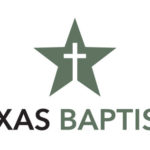Posted: 1/31/08
| A choir sings at the opening of the Celebration of a New Baptist Covenant meeting in Atlanta, Ga. (Photo by Billy Howard) |
Baptist unity takes center stage
as New Covenant meeting opens
By Marv Knox & Greg Warner
Baptist Standard & Associated Baptist Press
ATLANTA—Baptist unity took center stage during the opening night of the New Baptist Covenant convocation in Atlanta Jan. 30.
About 10,000 African-American, Anglo, Asian-American and Hispanic Baptists gathered at the urging of former President Jimmy Carter and Mercer University President Bill Underwood.
 |
| • See latest photos and the latest video clips from the New Baptist Covenant Meeting. (And go here to see our complete coverage of the event). |
They represented about 30 Baptist conventions and organizations, all affiliated with the North American Baptist Fellowship, the regional affiliate of the Baptist World Alliance.
“This is the most momentous event of my religious life,” said an emotional Carter, who at 84 has been a Baptist since he was a child. “For the first time in more than 160 years, we are convening a major gathering of Baptists throughout an entire continent, without any threat to our unity caused by differences of our race or politics or geography or the legalistic interpretation of Scripture.”
Gathering fulfills King prophecy
The convocation—the first trans-racial gathering of its kind since North American Baptists split over slavery in 1845—fulfilled the prophecy of Martin Luther King Jr., Underwood told the crowd.
“Forty-five years ago, a native son of Atlanta, a Baptist pastor, shared with all of us his dream: One day, on the red hills of Georgia, the sons of former slaves and the sons of former slave-owners would be able to sit down together at the table of brotherhood,” Underwood said to sustained applause.
“Today, here on those red hills of Georgia, Baptists have come together to take a step in the long and difficult journey toward achieving Dr. King’s great dream. After generations of putting up walls between us—separation, division by geography, by theology, but most of all division by race—a new day is dawning.
“Today, in this place, Baptists gather from the North and the South; from Canada, Mexico, the United States and around the world; white, black and brown; conservative, moderate and progressive. Today, we all sit down together at the table of Christian brotherhood and sisterhood.
“Today, we celebrate a new day. We celebrate a new way. We celebrate a new Baptist covenant—united together to present an authentic and genuine Baptist voice; united in traditional Baptist values, including sharing the gospel of Jesus Christ … united in honoring the commandment of our Lord and Savior, to honor our commitment to love others as God has loved us, and we will do something about it.”
Leaders of most of the participating groups first affirmed the New Baptist Covenant in April 2006. The covenant focuses on Baptist unity by fulfilling the mandate Jesus announced in his first sermon—preaching good news to the poor, proclaiming freedom and recovery of sight to the blind, releasing the oppressed and proclaiming “the year of the Lord’s favor.”
Invitation for all to join
That year “is perhaps long overdue,” Carter said in a keynote address, in which he focused most of his remarks on the cause of unity. Opening wide the door of fellowship, he invited all Baptist Christians into the New Baptist Covenant movement.
 |
| Jimmy Carter at the podium. |
He implored the diverse Baptists gathered in the Georgia World Congress Center to make unity the distinctive element of their gathering.
“There will be no criticism of others—let me say again—no criticism of others or exclusion of any Christians who would seek to join this cause,” he said.
“Animosity is like a cancer in the body of Christ,” declared Carter, who tried unsuccessfully a decade ago to convince feuding Southern Baptist factions to bury the ecclesiastical hatchet.
Bickering among Christians has produced a “negative image” in the public mindset, an image opposed to “the gentle and loving image of the one we profess to worship,” Carter said.
That was not true of the first-century Christians, who grew from a meager 1,000 adherents to become the dominant religion in the Roman Empire, he said. “That expansion could not have been possible if the members of the early church were as divided as we Christians are today.”
Divisions "debilitated" church
“I’m not minimizing the importance of the controversies” among Christians and Baptists, said Carter, pointing out many denominations are likewise divided. But the issues that drive Christians into factions are not nearly as important as the things on which there is widespread agreement, he said.
He cited a laundry list of issues that have divided Baptists—the role of women in ministry and marriage, varying accounts of creation, legalized abortion, civil rights for gays, separation of church and state, and the death penalty. Those issues have debilitated the Christian church, he said, yet they are no more important than the early church’s dispute over circumcision.
On the other hand, he continued, two issues that foster unanimity among Christians are salvation by grace through faith in Jesus Christ and the need to put aside differences for the sake of unity.
When faced with both sorts of issues, Carter said, “we should remember their relative importance.”
Peace with justice
William Shaw, president of the National Baptist Convention, USA, one of four prominent African-American Baptist conventions, preached on the evening theme: “Baptist Unity in Seeking Peace with Justice.”
“This night and these days, we do a bold and glorious thing: We attempt to express the oneness which was our Lord’s desire for his people,” declared Shaw, pastor of White Rock Baptist Church in Philadelphia. That oneness centers on fulfilling Jesus’ “radical mission,” Shaw said.
Jesus wasn’t satisfied to merely bring relief to the persecuted and victimized, he explained, noting Jesus “concretized” his mission by seeking to reverse the structures and situations that caused oppression.
The heart of that quest is establishing justice and uprooting injustice, Shaw noted.
“Justice itself is rooted in the reality of the incarnation, in the reality of creation,” he explained. “For when God made mankind, he made us male and female—in his image. To do injustice to anybody is to do injustice to the reality of God, because we are in his image, and his image is not to be demeaned.”
Seeking to change society
That calls Baptists to seek change in society, he added.
“You can’t embrace the mission of Jesus and not encounter the reality of injustice.
He came not with actions of charity. He came to change. … Justice says we need to change the structures of victimization.”
Shaw warned the crowd not to settle for faulty imitations of change, or justice.
“Jesus came for reversal,” he charged. “Calm without justice is an illusion of peace. It is disguised oppression.”
Citing a litany of such “disguised oppression,” he noted recent violence and massacres in Kenya, “imbalance of power” in the Middle East, isolating Native Americans on reservations, and both slavery and segregation in the United States.
“There is no peace without justice; there is no morality without justice,” he declared.
In fact, morality can masquerade as justice and actually become a “tool of injustice,” he said. “If it is right—and it is—that children who are conceived should be brought to life, should children who are born have the right to life like everybody else? … If there is no right to life, the right to be born is a tool of injustice.”
Unfortunately, “there is a strong will within us not to change,” Shaw observed
“God loved us so much and wanted change for us so much, he came from heaven to earth … for change,” he said.
But American Christians resist change by claiming racial, religious, national and economic superiority, he noted. The effect of the resistance is rejection of Jesus and closer identification with the people who sought to kill him than Jesus himself, he added.
Fortunately, Jesus “does not reject his rejectors, and this is our hope now,” he said. “Look how many times we have rejected his authenticity. But this one who has been rejected comes again and again to us with his work and his mission in the world.”
The convocation has brought Baptists to a “new moment,” insisted David Goatley, president of the North American Baptist Fellowship.
Sign up for our weekly edition and get all our headlines in your inbox on Thursdays
"Name our failures"
“The New Baptist Covenant is a public witness to our common commitment to the gospel of Jesus Christ in word and deed,” said Goatley, executive secretary of the Lott Carey Baptist Foreign Mission Convention.
Participants came to Atlanta “not to endorse things as they are, but to name … our failures to live up to the will of Christ,” he said, noting the event also provides an opportunity “to explore networking and collaboration for ministries … particularly for persons who are marginalized.”
“Welcome to something that has never happened before,” Goatley added. “Never before have Baptists on this scale sought to cross the boundaries we choose to live behind—ethnicity, ideology, theology. Never before have Baptists on this scale sought to explore ministries of this impact. Never before have Baptists on this scale come together for cooperation and collaboration for missional ministry impact.
“We are at the threshold of great possibilities, and we’re glad you’re here.”















We seek to connect God’s story and God’s people around the world. To learn more about God’s story, click here.
Send comments and feedback to Eric Black, our editor. For comments to be published, please specify “letter to the editor.” Maximum length for publication is 300 words.